News
-
 Materials Science
Materials ScienceSalt can turn frozen water into a weak power source
Experiments reveal that when slabs of salty ice are strained, electricity is generated, though practical uses are still a long way off.
By Nikk Ogasa -
 Earth
EarthRecycled glass could help fend off coastal erosion
Sand made from recycled glass can be mixed with sediment to make a medium for plants to grow in. That can help with coastal restoration projects.
By Jude Coleman -
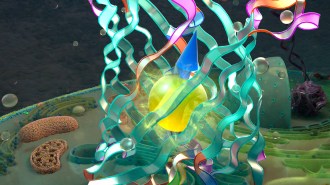 Physics
PhysicsScientists made a biological quantum bit out of a fluorescent protein
Researchers could use quantum effects to develop new types of medical imaging inside cells themselves.
-
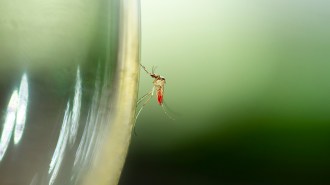 Humans
HumansWant to avoid mosquito bites? Step away from the beer
A Dutch music festival turned into a mosquito lab, revealing how beer, weed, sleep and sunscreen affect your bite appeal.
By Meghan Rosen -
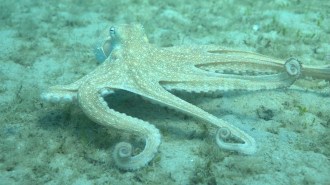 Animals
AnimalsOctopus arms are adaptable but some are favored for particular jobs
Octopuses are ambidextrous, a new study finds, but they favor their front arms for investigating surroundings and their back arms for locomotion.
By Jake Buehler -
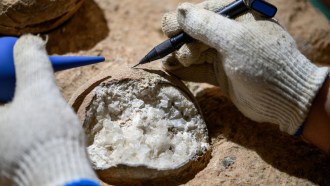 Paleontology
PaleontologyCrystallized dino eggs provide a peek into the tumultuous Late Cretaceous
Definitively dating the age of a clutch of fossil dinosaur eggs at a famous site in China may let scientists link eggshell features to environmental shifts at the time.
- Physics
A ‘ringing’ black hole matches scientists’ predictions
Gravitational waves emitted after two black holes coalesced agree with theories from physicists Stephen Hawking and Roy Kerr.
- Health & Medicine
The brain preserves maps of missing hands for years
Countering the idea of large-scale rewiring, women whose hands were removed retained durable brain activity patterns linked to their missing fingers.
-
 Health & Medicine
Health & MedicineChemicals in marijuana may affect women’s fertility
THC in marijuana may help eggs become ready for fertilization. But this may come at the cost of more eggs with wrong numbers of chromosomes.
-
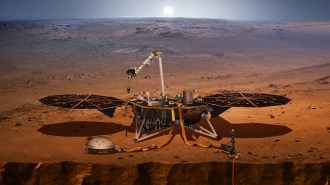 Planetary Science
Planetary ScienceSeismic waves suggest Mars has a solid heart
NASA’s InSight lander listened to Marsquakes for four years. The tremors revealed that Mars may have a solid inner core.
-
 Particle Physics
Particle PhysicsThis laser would shoot beams of neutrinos, not light
The subatomic particles called neutrinos are famously elusive. But an unconventional trick could make a laser beam of the aloof particles.
-
 Neuroscience
NeuroscienceYour red is my red, at least to our brains
Despite philosophical debates, colors like red may spark similar brain activity across individuals, new research suggests.